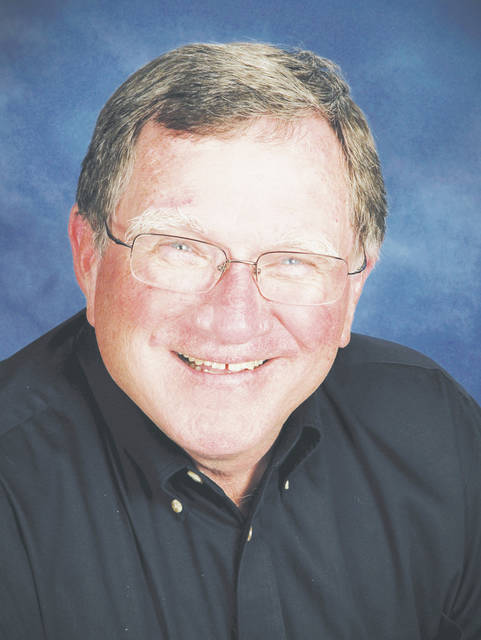
Years ago, I had the privilege of working with a red-headed, ex-Army nurse named Mildred Thoroman.
She was delightful. I loved working with her, as did everyone else. Her patients were blessed to have her as their nurse.
Not only did she care for her patients, she genuinely cared about them.
Her specialty was intensive care nursing. In the 1970s, she helped start the first intensive care unit at Clinton Memorial Hospital.
Regardless of how critical the situation might become, I never saw her get rattled. During the most serious of moments, as we struggled to keep someone alive, Thoroman was a calming influence. Her professional manner helped other members of the team focus on the situation at hand.
She also had a great sense of humor and was an expert storyteller, but her greatest gift was her heart of gold. She always focused on the patient.
Sometimes hospital employees might refer to a patient as the-gall-bladder-in-room-234, or the-vent-patient-in-106.
Not Mildred. She always focused on the patient as a person.
Around lunchtime one day, I stopped by the intensive care unit to check on one of our patients. As I sat at the nursing unit with Mildred, she asked if I’d do her a favor and watch the monitors for a few minutes while she put some soup in the microwave.
“Sure. I’ll be glad to help,” I said. She stepped into the break room.
There were only a few patients being monitored. One of the patients had a red note on his chart stating that he was a DNR (do not resuscitate) patient.
As I watched, his cardiac rhythm changed from a normal cardiac rhythm to a third-degree heart block. With the rhythm change, his heartrate and pulse dropped from a little above 60 beats per minute to only about five or six beats. It was no surprise to anyone. It was expected.
I called out to Mildred to let her know what was happening. Her immediate response was to ask me to stay at the nurse’s station and keep an eye on the other monitors. She said, “I’ll be in his room.”
Each of the individual ICU rooms had a camera set-up to keep an eye on the patient. As I watched, Mildred quietly walked into the dying man’s room. She gently took his hand in one of hers and placed her other hand on the gentleman’s forehead. A few minutes later, his heartbeat stopped completely.
Mildred leaned forward. It looked as if she might be whispering something to him. She then shut off his IV and turned off his monitors.
When she came back out to the nurse’s station, I remarked about the tenderness of what I had just seen. Her simple response was, “No one will ever die alone on my watch.”
I truly admired that woman.
Sometimes healthcare providers (doctors, nurses, therapist, technicians and others) get extremely busy. They lose sight of the person, the individual, they are caring for and go through the motions of providing excellent care without the compassion or the tenderness that Mildred brought to work with her every day.
That is not so much of a criticism as it is an observation.
Last month, I had to drive nearly an hour every day to just sit in a chair and watch my own father die from injuries he sustained from a fall. Most of his nurses were excellent. It was obvious that they liked their profession. They took very good care of Dad.
One day a patient care technician was having a little trouble getting Dad’s blood pressure. She seemed to become a little frustrated. I could tell she was a little aggravated – maybe not with Dad, but with something.
Earlier in the month, before Dad’s injury, I had posted on Facebook an old photograph of my Dad. The Facebook post was intended to honor Dad during Father’s Day.
It’s one of my favorite pictures of Dad. He was only 17 years old. He was sitting on a bicycle, grinning from ear to ear. There was joy on his face.
Using my iPhone, I accessed Facebook and pulled up that special picture of when Dad was young.
The next time Dad’s patient care technician entered the room, I waited for her to complete her tasks. She was still not the happiest person I’d seen all day.
Before she left, I told her that I wanted to show her something. I held my iPhone so she could see the picture of my Dad when he was young, smiling, full of life and promise.
She smiled with a slightly quizzical look on her face.
I told her, “This is my Dad. You can tell by that big Irish grin that he loved life.”
I continued, pointing at Dad, “It may be hard to tell it, but that grinning kid is still in there. Dad would love to be able to talk with you. He would love to tell you stories. Please, take good care of him.”
Before I finished, there were tears in both of our eyes.
I think everyone who enters a patient-care profession, and truly enjoys providing healthcare, has a little bit of Mildred Thoroman in them.
Sometimes, it just needs to be coaxed to surface.
Randy Riley is former Mayor of Wilmington and former Clinton County Commissioner.


